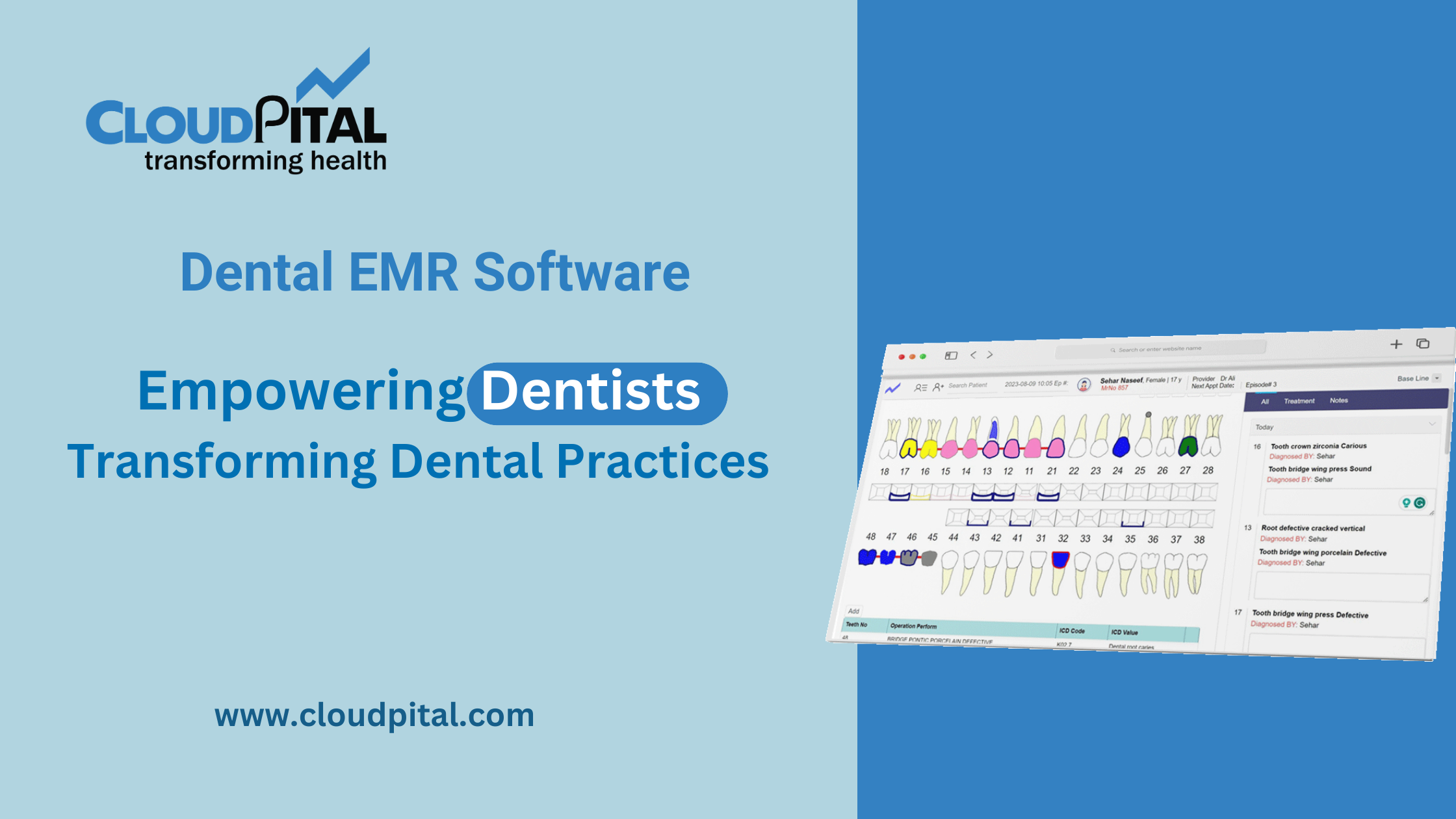Cloudpital # 1 is one of the top Medical billing companies a critical component of the healthcare industry, serving as the bridge between healthcare providers, patients, and insurance companies. It involves the process of translating healthcare services into billable codes, submitting claims to insurance companies, and ensuring that healthcare providers are reimbursed for their services. This process is essential for the financial stability of healthcare providers and the accessibility of healthcare services for patients.
Click to Start Whatsapp Chatbot with Sales
Mobile: +966547315697
Email: sales@cloudpital.com
Cloudpital # 1 Medical billing

The Importance of Medical Billing
Medical billing is the backbone of the healthcare revenue cycle. It ensures that healthcare providers are compensated for the services they provide, which is crucial for maintaining the quality and availability of healthcare services. Without effective billing practices, healthcare providers would struggle to cover the costs of operations, which could lead to reduced access to care for patients.
The Process of Medical Billing
- Patient Registration: The medical process begins with patient registration. This involves collecting patient information, including personal details, insurance information, and medical history. Accurate patient registration is crucial, as errors in this stage can lead to claim denials and delayed payments.
- Insurance Verification: After registration, the healthcare provider verifies the patient’s insurance coverage. This step ensures that the services provided are covered by the patient’s insurance plan and helps to avoid any unexpected out-of-pocket costs for the patient.
- Medical Coding: Medical is closely linked with medical coding. Medical coders review the patient’s medical records and assign standardized codes to the services provided. These codes, such as those from the International Classification of Diseases (ICD) and the Current Procedural Terminology (CPT), are used to communicate with insurance companies about the services rendered.
- Claim Submission: Once the medical services have been coded, a claim is generated and submitted to the insurance company. This claim includes all the necessary information about the patient, the healthcare provider, the services provided, and the associated costs.
- Insurance Processing: The insurance company reviews the claim to determine if the services are covered under the patient’s plan. They may approve the claim in full, approve it partially, or deny it. If the claim is denied, the medical staff must investigate the reason for the denial and, if possible, correct any errors or provide additional information to get the claim approved.
- Payment Posting: Once the insurance company processes the claim, they make a payment to the healthcare provider. This payment is posted to the patient’s account, and any remaining balance is billed to the patient.
- Patient Billing: After insurance payments have been received and posted, the healthcare provider bills the patient for any remaining balance. This could include copayments, deductibles, or services not covered by insurance.
- Collections: If the patient fails to pay their bill within the specified timeframe, the account may be sent to collections. The Medical billing department must then work with collection agencies to recover the owed amount.

Challenges in Medical Billing
The Appointments Scheduling process is complex and fraught with challenges. Errors in coding, incorrect patient information, and issues with insurance claims can lead to claim denials, delayed payments, and financial losses for healthcare providers.
- Claim Denials: One of the biggest challenges in billing is dealing with claim denials. Insurance companies may deny claims for various reasons, including incorrect coding, lack of documentation, or services deemed medically unnecessary. Managing and resolving these denials is a time-consuming process that requires attention to detail and a thorough understanding of insurance policies and regulations.
- Compliance with Regulations: Medical billing is subject to various regulations, including the Health Insurance Portability and Accountability Act (HIPAA). Compliance with these regulations is essential to protect patient information and avoid legal penalties. However, staying up-to-date with the constantly changing regulatory landscape can be challenging for healthcare providers.
- Technological Advancements: The healthcare industry is increasingly relying on electronic health records (EHRs) and medical billing software to streamline operations. While these technologies offer many benefits, they also present challenges, such as the need for ongoing training, system updates, and cybersecurity measures to protect sensitive patient information.
- Patient Payment Challenges: With the rising cost of healthcare, patients are often responsible for a larger portion of their medical bills. This can lead to difficulties in collecting payments from patients, particularly those who are uninsured or underinsured. Medical staff must be skilled in communicating with patients about their financial responsibilities and offering payment plans or financial assistance when necessary.
The Role of Medical Billing in Enhancing Patient Care
While medical is primarily a financial process, it also plays a vital role in enhancing patient care. By ensuring that healthcare providers are reimbursed for their services, medical billing allows providers to focus on delivering high-quality care to patients. Moreover, accurate medical billing can help prevent billing errors that could lead to patient dissatisfaction or financial hardship.
- Streamlining Operations: Efficient medical billing processes streamline the revenue cycle, allowing healthcare providers to focus on patient care rather than administrative tasks. This efficiency can lead to faster claim processing, quicker payments, and a more stable financial environment for the healthcare provider.
- Patient Satisfaction: Transparent and accurate billing practices contribute to patient satisfaction. Patients who understand their financial responsibilities and receive clear, accurate bills are more likely to pay their bills on time and continue seeking care from the same provider.
- Supporting Preventive Care: By ensuring that healthcare providers are adequately compensated for preventive care services, medical billing supports the broader goal of improving public health. When providers are reimbursed for services like vaccinations, screenings, and wellness visits, they are more likely to offer these services to their patients.
The Future of Medical Billing
The future of medical billing is likely to be shaped by ongoing technological advancements and changes in healthcare policy. As the industry moves towards value-based care models, where providers are reimbursed based on patient outcomes rather than the volume of services provided, medical billing processes will need to adapt.
- Automation and Artificial Intelligence (AI): Automation and AI are expected to play a significant role in the future of medical billing. These technologies can help reduce errors, streamline claims processing, and improve the accuracy of medical coding. For example, AI-powered tools can analyze medical records and automatically assign the correct codes, reducing the risk of human error.
- Telehealth and Remote Care: The rise of telehealth and remote care services will also impact Mobile EHR. As more patients receive care outside of traditional healthcare settings, medical billing processes will need to accommodate these new services. This may involve updating billing codes, ensuring compliance with telehealth regulations, and working with insurance companies to secure reimbursement for virtual care.
- Patient-Centric Billing: As healthcare becomes more patient-centric, medical billing will need to evolve to meet the needs of patients. This could include offering more flexible payment options, providing clear and understandable bills, and using technology to enhance communication with patients about their financial responsibilities.
Conclusion
Medical billing is a vital part of the healthcare industry, ensuring that healthcare providers are compensated for the services they provide and that patients have access to the care they need. Despite its challenges, effective medical billing practices contribute to the financial stability of healthcare providers and the overall efficiency of the healthcare system. As the industry continues to evolve, medical billing will need to adapt to new technologies, regulations, and patient expectations, all while maintaining its essential role in the healthcare revenue cycle.
Click to Start Whatsapp Chatbot with Sales
Mobile: +966547315697
Email: sales@cloudpital.com
Medical Billing
Medical Billing
Medical Billing
What is the role of Medical billing in the healthcare industry? similar software solutions prices were updated on 2025-06-16T01:44:40+00:00 in Saudi Arabia in Mecca, Medina, Riyadh, Khamis Mushait, Yanbu, Jeddah, Dammam, Unaizah, Uqair, Ha’il, Ta if, Al Bahah, Dhahran, King Abdullah Economic City, Najran, Diriyah, Qatif, Khafji, Jubail, Abqaiq, List of Cities and Towns in Saudi Arabia, Ras Tanura, Turubah, Jazan Economic City, Knowledge Economic City, Medina, Khobar, Abha, Tabuk, Saudi Arabia, similar software solutions prices were updated on 2025-06-16T01:44:40+00:00 We also provide in Saudi Arabia services solutions company in Hafar Al-Batin, Udhailiyah, Al-Awamiyah, Hofuf, Hautat Sudair, Buraidah, Tayma, Duba, ‘uyayna, Saihat, Al-Kharj, Al-ula, Jizan, Rumailah, Ar Rass, Arar, Shaybah, Al Majma’ah, Rabigh, Dhurma, Haradh, List of Saudi Cities by Gdp Per Capita, Badr, Sudair Industrial City, Baljurashi, Shaqraa, Al-Khutt, Habala, Ad Dawadimi, Dawadmi, Layla, similar software solutions prices were updated on 2025-06-16T01:44:40+00:00 Price is SAR 100 and this was updated on updated on 2025-06-16T01:44:40+00:00 similar What is the role of Medical billing in the healthcare industry? software solutions prices were updated on 2025-06-16T01:44:40+00:00 in Saudi Arabia in Haql, Afif, Al-Abwa, Farasan, Al-Jaroudiya, Thadig, Al-Thuqbah, Al Wajh, Almardmah, Al-Zilfi, Muzahmiyya, Prince Abdul Aziz Bin Mousaed Economic City, Tharmada’a, Skaka, Um Al-Sahek, Sharurah, Tanomah, Bisha, Dahaban, Al Qunfudhah, Qurayyat, Saudi Arabia, Ha’ir, as Sulayyil, Al Lith, Turaif, Al-Gway’iyyah, Samtah, Wadi Ad-Dawasir, Az Zaimah, Safwa City, Jalajil, Harmah, Mastoorah, Hotat Bani Tamim, Jabal Umm Al Ru’us, Rafha, Qaisumah, Al-Ghat, Hajrah, Al-Hareeq. Excerpt: Jeddah (also spelled Jiddah, Jidda, or Jedda; Arabic: Jidda) is a Saudi Arabian city located on the coast of the Red Sea and is the major urban center of western Saudi Arabia similar software solutions prices were updated on 2025-06-16T01:44:40+00:00 Price is SAR 100 and this was updated on updated on 2025-06-16T01:44:40+00:00
22-8-2024



